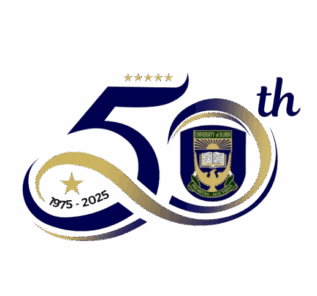By Mustafa Abubakar and Bashirat Omotosho
The Vice Chancellor of the University of Ilorin, Prof. Wahab Olasupo Egbewole, SAN, has commended the Centre for Management and Leadership Ilorin (CMLI) for organising a two-day intensive training, which equipped stakeholders with critical skills needed in community conflict and security management.
The two-day training, which ended last Tuesday (July 29,2025), took place at the University Auditorium Basement.
The event brought together administrators, community leaders, civil society representatives, and security stakeholders for practical knowledge-sharing on preventing, managing, and resolving security and conflicts.
The Vice Chancellor, who was represented by the Deputy Vice Chancellor (Management Services), Prof. Adegboyega Adisa Fawole, described the training as timely and impactful.
Prof. Egbewole said, “Security challenges are evolving daily, and our ability to understand and address community conflicts proactively will determine the stability and progress of our society. I urge you all to apply the insights gained here to strengthen peaceful coexistence and development in your respective communities.”
He added that the University will continue to champion research, training, and outreach that address real societal problems.
Earlier in her welcome address, the Ag. Director of CMLI, Dr Adeola A. Odebode, emphasised the Centre’s mission of equipping leaders with practical skills needed to tackle complex social challenges.
“At CMLI, we believe that every leader must be equipped not just with theoretical knowledge but with practical tools to mediate, negotiate, and resolve conflicts,” she said.
“Conflicts will always arise, but how we manage them makes all the difference between destruction and transformation.”
She encouraged participants to fully immerse themselves in the training and to network beyond the sessions.
“I urge you to take this training seriously, ask questions, share your experiences, and build lasting partnerships. Our hope is that you leave here not just informed but empowered to make real impacts,” Dr Odebode added.
Dr Odebiyi Maruf, while delivering a paper on Essential Elements of Community Conflicts, noted that, “Conflicts don’t just happen overnight—they brew silently when identity, resources, and ideology collide. Our communities must learn to detect early signs and defuse tensions before they explode.”
Dr Abdulrasaq AbdulKareem, who led the session on stakeholders engagement, stressed the importance of trust and inclusivity.
“We must carry everyone along—traditional leaders, women, youths, civil society. Dialogue is the bedrock of lasting peace,” he said.
Also speaking, Dr Adebayo Muhammad Ojuolape, explained that poverty and inequality remain the root triggers of many conflicts.
“When people are hungry and feel unheard, conflicts festers. The solution is to tackle poverty head-on while creating structures for equitable dialogue,” he remarked.
Dr Oluwatosin Igbayiloye, in her presentation on Human Rights and Legal Framework, urged participants to balance enforcement with compassion.
“Security without respect for human rights is a recipe for bigger conflicts. We must respect the rule of law while protecting communities,” she stated.
In his presentation, the Director of University Health Services, Dr Rasheed Odunola, warned of the health implications of conflicts.
“Conflicts break communities physically and mentally. Health security must be part of any conflict response plan,” he said.
In her contributions, Prof. Rihanat Abdulkadir, pointed out the link between mismanaged resources and insecurity.
“Transparency and strategic budgeting are the backbone of trust. Without them, conflicts over resources are inevitable,” she warned.
The Director of Counseling Services, University of Ilorin, Dr Bolu-Steve, appealed for sustained community healing.
“Post-conflict reconciliation is not an event but a process. Trauma must be addressed, dialogue must continue, and communities must own their healing journey,” she said.
Others who delivered one paper or the other at the workshop were Dr A. K. Abdulkareem, Prof. Abosede Omowumi Babatunde, and Prof. Azubike Antonia, among others.
Also present were the Deputy Vice Chancellor (Academic), Prof. Moji Taibat Bakare-Odunola; the Registrar, Mr Mansur Adeleke Alfanla; the Bursar, Mr Lawal; the University Librarian, Prof. Kamaldeen Tunde Omopupa, among others.

